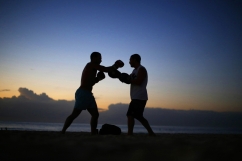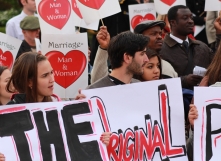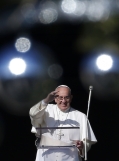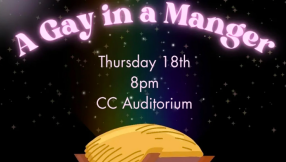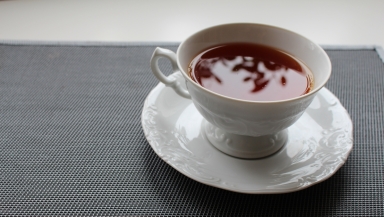
Ah, tea. Tea is lovely. Lapsang, Earl Grey, a fine Formosan Oolong, Gunpower green or delicate Darjeeling, or even plain old builders' – it's all a delight. Rooibos is fashionable now but I never really took to it, though have I enjoyed a (very expensive) Shipwreck blend. My grandmother drank Luaka, which I thought tasted of fish, but she enjoyed it.
Tea is British. We can't grow it, but my goodness, we drink it – pond-fulls of the stuff when it was a luxury in the 18th century, and whole oceans ever since, when it got cheap.
Not only is it lovely, it even stops you getting cholera. And tea, properly understood, might have something to contribute to the struggle against diseases which are, in their way, equally deadly.
Our society is facing agonisingly difficult debates about the limits of freedom. Should a florist be able to choose not to sell to a customer for a gay wedding? Should a hotelier be able to refuse a room to a gay couple? Should outward symbols of religion – a cross, for instance – be banned from the workplace?
Or, an infinitely more poignant question: should cartoonists be able to draw what they like, offending, if they choose, at the deepest and most visceral level, the religious feelings of an entire section of the population?
In that case, the almost universal answer has been, "Yes, they should." Now, we might just notice here the inconsistencies and muddle of the liberal argument. We don't allow hate speech, we don't allow people to be mocked and pilloried for their gender or their sexuality or their colour, for instance, but religion is fair game. We might point out that putting religion in a different category from these is to mistake the very nature of religious belief: it is to see it as an opinion on a level with liking Bach rather than Gershwin, rather than as an identity which is as fundamental to a person's being as their gender, sexuality or colour.
Nevertheless: let's grant that religion should not be protected. The thing about tea is that it promotes that other great British virtue, politeness. (One of the British participants in early talks with the IRA recalled later how odd it was to ask someone who'd been trying to kill you whether they took sugar.)
Politeness is an under-rated virtue. It involves a deliberate attempt to put yourself in the shoes of another person and to behave in such a way that their social discomfort is minimised. In the hands of a skilled operator, of course, it is a deadly weapon: there's nothing as maddening as hearing someone drawl, "I'm sure you're right" when he clearly thinks you're an idiot.
But I think it is politeness that is missing from much of our current debate about religion and culture, not just in the tone of the debate itself – which can get pretty nasty at times – but in the failure of the participants to put themselves in the position of their intellectual or spiritual opponents.
There has been a tone of bafflement in much of what has been written, said and drawn about the Charlie Hebdo massacre: as though it is simply inconceivable that a cartoon could elicit the horrific violence which took place last week. There is no scale on which such a response could be proportionate, let alone justifiable. But this reaction fails the politeness test completely. It does not begin to understand the depth of devotion to the Prophet Mohammed felt by devout Muslims, and the corresponding horror at any perceived insult to him. Add a toxic theology of retributive violence, a ready supply of guns and ammunition, a section of the Muslim population which feels disaffected, marginalised and dishonoured, and this was going to happen.
All of us rightly reject and detest what was done in Paris. But those who say that it was simply irrational or psychopathic have not taken the trouble to think things through. And the danger is that the whole debate is framed in terms of winners and losers: either you are in favour of free speech, in which case Je suis Charlie, tout court, or you are not, in which case you are siding with terrorists.
But people of faith need to model a different response altogether. In an interview recently reflecting on Pope Francis' address to the European Parliament in which he warned against the danger of "individualist rights", former Archbishop of Canterbury Rowan Williams said: "The challenge is to reimagine human rights and I guess that is part of what the Pope is saying; reimagine human rights with a very, very strong emphasis on reciprocity – what we owe to one another, not just what is owed to us."
As ever, Williams nails it. I do not, in fact, believe that it is practicable to afford religious people extra legal protection when it comes to offending language or imagery, even if it were desirable. But I do believe in politeness; a robust, challenging politeness, to be sure, but still: a way of using words and images that is fully aware of the impact they will have on their targets, and which errs on the side of kindness wherever possible.
It is not always possible, and this is where religions – all religions – need to learn politeness too. We need to reach a point where the first reaction of Christians who feel a bit persecuted is not to pick up the phone to Christian Concern. Some Muslims need to reach a point where they do not respond to offences against their faith by calling on the offenders to be silenced by law.
And some, whose spirituality has been twisted by preachers of hate and rejection, who are inspired by the nihilistic fundamentalism of Islamic State and Al Qaeda, need to reach a point where they see that God and his prophets do not require defending through violence, and that if their religion is worth anything, it can smile at those who offend it rather than seeking revenge.
Tea theology. It might catch on.











